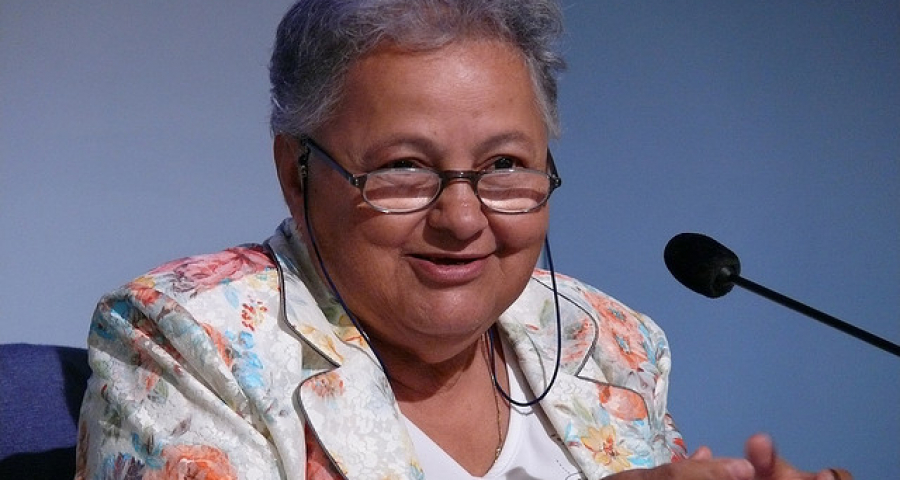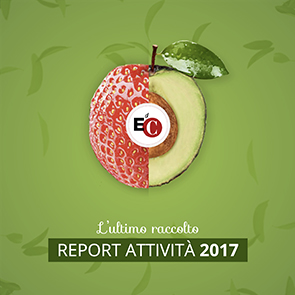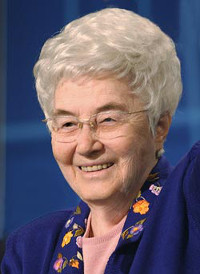On Saturday 29 May, Brazilian sociologist Vera Araujo will take part in our 30th anniversary event: here is an account of how she experienced the birth of the EoC in May 1991, from a 2011 interview. A very engaging story that takes us right back to the atmosphere of those days.
di Antonella Ferrucci
Vera, what did the launch of the EoC mean to you from your point of view as a sociologist and as a Brazilain sociologist?
When Chiara went to Brazil in 1991 I had been in Loppiano for some years already. I was in charge of the cultural formation of the different schools of formation present there. At the same time, I closely followed the development of the Movement in Brazil with great interest. I was constantly aware of the social challenges that were becoming more intense.Her last visit to Brazil was in 1965 and even then, many of the social problems came to the fore. Chiara was shocked with the great disparity she saw in NorthEast Brazil, in Recife. She wrote some very beautiful thoughts on her journal which would then be published. From 1965 to 1991 the Movement had grown considerably in Brazil and it’s social impact on the country has grown as well. Everyone had waited for her visit in great anticipation and hope. Even for me who was here in Italy then, I felt something. There was a certainty that “something” had to happen. In fact, I had called Chiara just before they left and telling her that I was with her, even if I wasn’t part of the group that accompanied her.
And then Chiara left and we all know that at the end of the month that she spent in Mariapoli Araceli this inspiration came to her.
Yes, during the entire period, Chiara kept a journal which she sent to the members of the Movement. It was through this journal that we were able to follow what was happening in Brazil. You could also feel the intense and vital atmosphere during those days. I would read these journal entries that were sent. At one point, the journal of what is called the “bomb” arrived. I read this journal and the following entries and there was an extraordinary reaction. Everyone was talking about it with great enthusiasm. Honestly, I personally did not understand why. I couldn’t grasp it. What she said seemed like a beautiful thing but it was not “what I had expected.” I didn’t realize the extent of this news right away. It was quite obscure. And the more I heard the reactions, the more I felt bad because I did not understand.
And then what happened?
The International Bureau of Economics and Labor was being held in Castelgandolfo. Chiara had already returned to Italy by that time. Oreste Basso, at that time co-president of the Movement, came to update us about everything. I remember her spoke for more than an hour and was able to transmit very well what had transpired in those days. He then showed us a video of Chiara’s speech in Mariapoli Araceli. At that point something extraordinary happened. I was already familiar with the topic from having read the journal but hearing Chiara, I had some kind of enlightenment: in one moment I saw “everything.” I remember that I went home and I wrote her immediately saying that I had understood, all the cultural, economic and sociological implications of the “Economy of Communion” project.
The following days Chiara called all the heads of the movement for an update and I was called to join as well. When I entered the sala, Chiara came up to me and greeted me saying “Today is your day.” She then gave a rich and extraordinary update and read out the reactions, including mine. In a week’s time I was scheduled to leave for Argentina to hold a “social school” in the Mariapoli of O’Higgins. But right after that updating, I received a phone call from Chiara who said, “I learned that you are going to O’Higgins. Great. I will make some changes in your itinerary. You have to go to Argentina but not only to O’Higgins. You have to visit all the zones and you must bring the news of the Economy of Communion to all.” I was caught by surprise and was about to say, “But Chiara, I was not even present..” and she said, “It does not matter. You have understood well. We will provide you with all the materials and you, on my behalf, will bring this reality to Argentina.” So I left for Argentina and I visited all the communities – O’Higgins, Rosario, Cordoba and Buenos Aires. It was an extraordinary experience because the results were the same as Brazil! There was a great enthusiasm, enterprises were born and many adhered. All the aspects of the Economy of Communion were there. Since then, I have spoken of the Economy of Communion in different parts of the world.
Do you remember any particular anecdote from those days 20 years ago?
I remember a funny one about myself. While everyone was writing Chiara when she was in Brazil, I did not write her, precisely because “I did not understand.” When she was leaving Mariapoli Araceli, her secretary, Tininha, a Brazilian focolarina, called me in Loppiano from Brazil saying, “You are so thoughtless!” Chiara had left, she was in the car and was greeting the people. She saw me and called me to greet me and said, “Tininha, I did not receive ANYTHING from Vera.” I felt like I was going to die because of all the letters she had received during those days, Chiara noticed that I had not written anything! This caused me even more anguish! Then everything else which I just told you followed.
The expression “culture of giving” came from you, something that has characterized the EoC in these 20 years. It is a kind of giving that is not one-way though because it also entails receiving in reciprocity. How are these two aspects united?
This new element of “giving” which had to enter in economy was to overcome the culture of egoism, of accumulating. It leads to a culture of relations that is brought into the circuit of the production of goods, communion and sharing. Giving acquires an aspect that is not only spiritual but cultural and even economic. It was to introduce a new mentality that put into action a kind of sharing within the economic structure itself. It was giving not as a “decision from above” but in recognition that the other had a “right to communion.” It was to activate a “circulation.” Giving would become reciprocal. Receiving was also giving because it was “giving one’s needs.” Giving economic or relational goods became sharing in one circuit where people would come together with the same “level of dignity.” In these years, all the characteristics of giving has been elaborated on – gratuity, simplicity, the joy, altruism. All the aspects of a way of being that would become an action: the “homo donator”, the human being who knows how to donate, to give, to share. This is a great theme that has yet to be expounded on and demonstrated in all its perspectives.











